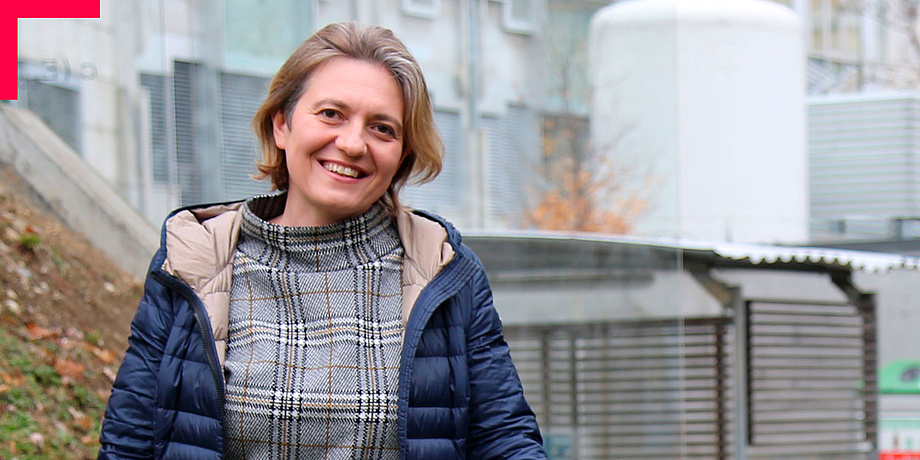For a layman, the process sounds a little like an ecological fairy tale. In the laboratory, CO2 is already becoming a feedstock for bacteria. The aim of the trials is to eventually couple the bio-processes from the laboratory with industry. In simple terms, this means getting the bacteria to "eat" the waste gas streams. The bacteria practically transform the "climate killer" into biomass that can be used as animal feed. And that would be a real win-win situation.
But before that, a lot of research work is still needed. "CO2 is the only carbon source that can replace fossil fuels in terms of quantity. However, carbon dioxide is also a very stable molecule. That's why you need a lot of energy to convert it. Our bacteria use hydrogen as an energy source for this process," explains Regina Kratzer from the Institute of Biotechnology and Biochemical Engineering at Graz University of Technology (TU Graz). That's why safety is currently the big issue in the laboratory – after all, the resulting oxyhydrogen gas is highly explosive.
Binding CO2 is the focus of research
"NASA was already working on turning CO2 into biomass in the 1960s," says Kratzer. At that time, the idea in the background was to produce biomass as food for long-duration flights from the astronauts' breathing air.
But today, the driving force is the necessity to get a grip on our CO2 emissions and the resulting impact on our climate. That is why the "product" doesn't play a major role for Regina Kratzer: "The original strain of bacteria our team worked with produced biopolymers, i.e. bioplastics. And it worked. The bacteria currently used produce biomass. However, our research is primarily concerned with binding CO2 and not with the product generated by the bacteria," says the biotechnologist. Because the product could theoretically be chosen within a certain range, depending on which strain of bacteria you use. The focus is on a functioning and safe bioprocess development – but on a large scale. After all, the goal is to use it in large industrial plants.
Bacteria produce biomass or plastics
The experts in biotechnology in Graz are currently developing an instrumented bioreactor design with gas sensors for precise monitoring and evaluation. "And with the very first experiments, we have already managed to produce 12 grams of cells per litre of bacterial culture," says Kratzer enthusiastically about the results so far. This is because the bacteria produce enormous quantities compared to their own size. Under optimal conditions, natural bacteria consist of 90 percent biopolymers at the end of cultivation.
The researchers at the Institute of Biotechnology and Biochemical Engineering at TU Graz are working on the efficient conversion of CO2, which is either used directly as a raw material or has already been bound by plants as lignocellulose – as in straw or wood residues. This has an additional advantage, says Kratzer: "By doing so, we avoid the food versus fuel debate that happens when bioprocesses use, for example, corn, sugar cane or vegetable oil as new feedstocks."
Studying biotechnology and counteracting climate change
"Fridays for Future" is about counteracting climate change. Sustainability and circular economy are currently the defining issues in biotechnology as well. "Studying biotechnology means working in a modern and popular field," says Regina Kratzer. Much is made possible here in close cooperation with other departments, from mechanical engineering to thermal engineering. "For example, my colleague, Vanja Subotic, supports the bioreactor and process design in her capacity as a fuel-cell expert. And the research is also funded by the acib GmbH competence centre (Austrian Center of Industrial Biotechnology) as part of the EU ConCO2rde project."
Studying at TU Graz: The Bachelor's degree programmes in Chemistry, Molecular Biology, Environmental System Sciences and Process Engineering lead into the field of biotechnology. Finally, Biotechnology is one of several English-language Master's programmes offered at the Faculty of Technical Chemistry, Chemical and Process Engineering and Biotechnology. Visit the website "Degree and Certificate Programmes" to get informed about all the bachelor's and master's degree programmes offered by TU Graz.

Researchers at TU Graz are looking for solutions to the burning problems of the present. What topics are currently on their radars and what you can study to change the future, you can find out on TU Graz screenshots.
